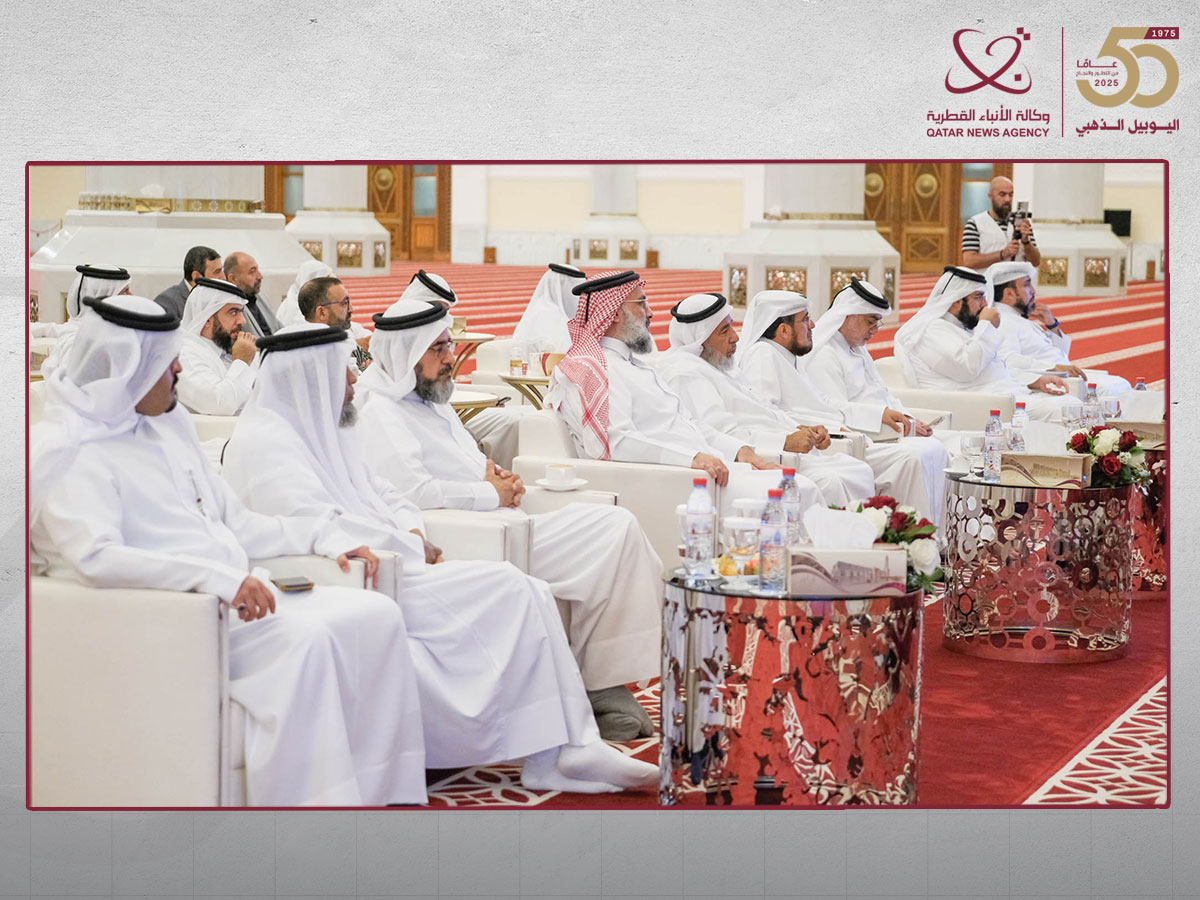Ministry of Awqaf Organizes First Event of Second Cultural Season of Knowledge Integration Seminar Series
By He Minister
Copyright qna

Doha, September 10 (QNA) – The Department of Islamic Research and Studies at the Ministry of Endowments (Awqaf) and Islamic Affairs organized Wednesday the first event of the second cultural season of the Knowledge Integration seminar series at the Imam Muhammad ibn Abd Al Wahhab Mosque.
The event was held in collaboration with the Ibn Khaldun Center for Social Sciences and Humanities at Qatar University.
The seminar was attended by HE Minister of Endowments (Awqaf) and Islamic Affairs Ghanem bin Shaheen Al Ghanem, a number of the Ministry’s officials and department directors, Dean of the College of Sharia and Islamic Studies at Qatar University Dr. Ibrahim bin Abdullah Al Ansari, and several researchers, preachers, and specialists.
Director of the Department of Research and Islamic Studies Sheikh Dr. Ahmed bin Mohammed bin Ghanem Al Thani, said that the seminar held twice a year, serves as a cultural and intellectual platform aimed at promoting a culture of integration between sciences and research into social issues from an Islamic perspective.
He noted that the department seeks, through these seminars, to enhance awareness of the importance of cultural interaction as a means of advancing the nation’s civilization.
The seminar reviewed the impact of cultural interaction on achieving cognitive integration through illuminating examples from the journey of Islamic civilization.
Head of the Research and Studies Unit at the College of Sharia at Qatar University Professor Dr. Aziz Al-Batiwi, presented a paper on The House of Wisdom in Baghdad (the Era of Al Ma’mun) as a Model.
Professor of Ethics and Islamic Thought Dr. Kamal Aslan highlighted in his presentation on the Innovations of Islamic Civilization in Andalusia, that Andalusia constituted a cultural bridge between East and West and a vibrant knowledge laboratory where Muslims excelled in the fields of medicine, astronomy, mathematics, engineering, and the arts.
He noted that the Islamic civilization in Andalusia represented one of the most brilliant human experiences, blending scientific and intellectual creativity with cultural diversity and religious tolerance to form a civilizational bridge between East and West.
He added that Andalusia was not merely a historical era, but a vibrant civilizational laboratory that produced an integrated system of values and scientific and artistic achievements, contributing to the subsequent European Renaissance.
He confirmed that studying the Andalusian experience restores the Islamic nation’s confidence in its ability to advance, believing that the secret to its prosperity lay not in the genius of individuals alone, but in the cultural environment that embraced knowledge and freedom and provided the conditions for creativity and integration of knowledge.
He emphasized that the responsibility of contemporary generations lies not in being content with pride in the past, but rather in drawing inspiration from its lessons to build a future based on knowledge and ethics, and reaffirming the Islamic nation’s position within human civilization. (QNA)



